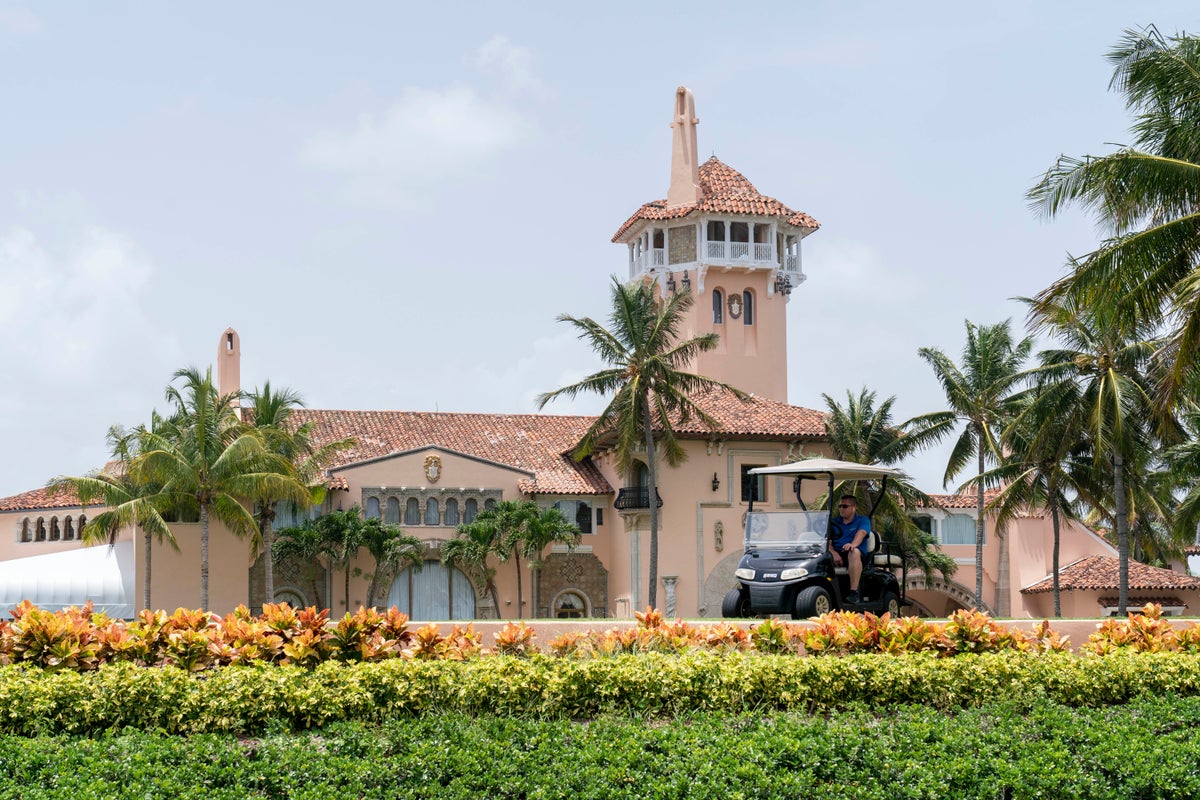
The FBI may have already searched Mar-a-Lago for sensitive documents allegedly improperly taken from the White House, but the agency’s investigation of former president Donald Trump seems far from over.
One of the key areas of interest for the Department of Justice is where and how Mr Trump kept the boxes of presidential records at his Florida residence and golf club. The DOJ has twice asked for the club’s surveillance video tapes, which reportedly contain records of individuals going in and out of a storage room where the records at issue were kept.
In June, the Justice Department subpoenaed the Trump Organization, which owns Mar-a-Lago, asking for the tapes, The Washington Post reported.
Then, following the FBI’s dramatic 8 August search of Mar-a-Lago, the agency asked a second time for the security tapes, according to The New York Times.
The Independent has contacted the Justice Department, the Trump Organization, and Donald Trump for comment.
In a redacted copy of the FBI affidavit backing up the search released on Friday, the DOJ describes a number of important records, some of them top secret, which appeared to have been kept in poor condition in a basement at the club.
“Mar-a-Lago does not include a secure location authorized for the storage of classified information,” reads a June letter from the DOJ to Mr Trump’s lawyers, included in the affidavit, arguing the records held at the facility at the time “have not been handled in an appropriate manner or stored in an appropriate location.”
As such, the agency then asked Mr Trump to keep the records there “in their current condition,” a likely attempt to preserve evidence of potential violations of laws concerning the handling of classified White House materials.
Federal officials have been alarmed at the state of records in Mr Trump’s possession.
In May of 2022, at the referral of the National Archives and Records Administration (Nara), the FBI began reviewing 15 boxes of White House documents that had been taken to Mar-a-Lago. What they found inside was alarming.
The cache of materials contained “newspapers, magazines, printed news articles, photos, miscellaneous print-outs, notes, presidential correspondence, personal and post-presidential records and ‘a lot of classified records.’”
“Of most significant concern,” the Nara said in its referral, “was that highly classified records were unfoldered, intermixed with other records, and otherwise unproperly (sic) identified.”
According to the FBI affidavit, 14 of those 15 boxes contained highly sensitive material. Among the 184 documents found inside, 67 were marked confidential, 92 were marked secret, and 25 were marked top secret, a classification that denotes, as the special agent authoring the affidavit put it, “grave damage to the national security” if they ever got out.
Mr Trump called the FBI search a “witch hunt” on Friday on social media and insisted he had done nothing wrong, blasting the inquiry as “a total public relations subterfuge.”







